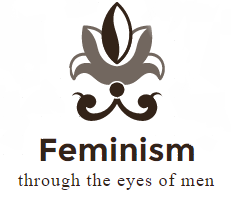Where we are today
The feminist movement is strongly rejected today by men, especially in developing nations. This phenomenon is mainly due to the confusion between the political, economic, and social promotion of gender equality (feminism) on one hand, and the revendication of female gender's superiority (feminazism) on the other hand. This misconception of what feminism is really about has lead to its rejection. Less attention is therefore paid to crucial and urgent matters regarding women's rights, that also happen to be human rights. For example, the debates concerning the reform of the article 522 of the Lebanese criminal code (regarding rape penalties) had difficulties in being integrated into Lebanon's parliament's agenda, for it has been considered as less important than other debates (N.B : 124/128 of deputies in the Lebanese parliament are men !). In addition to that, the counter movements previously cited tend to demonize feminism, and thus discredit it even more.
This misconception of feminism is also dangerous because women themselves start doubting this movement and its goals, causing them to accept being considered as belonging to an inferior gender and consequently resign in the battle for women's rights, returning to what Poullain de la Barre denounced during the 17th century.
This makes us wonder if history is just a cycle: It's 2017, and we are still fighting to claim the same rights Condorcet and Poullain de la Barre fought to achieve. Five centuries were not enough to integrate women fully and internationally in the public sphere: many women today do not work in order to fulfill their role as housewives, some of which are strained by their spouses or parents, not out of personal choice.
Did anti-feminists movements influence feminism negatively, or did they actually help women make a valid point? We should not ignore the role that counter-feminists movements had in this durability of the patriarchal misogynist system: even though countless men integrated the feminist movement and helped better the situation of women in society as well as broaden their role, feminazism and the men's rights movement ferociously stigmatized men-feminists and women's goals.
This is where the significance of the role of associations and NGOs in spreading the real and transparent meaning of being a feminist through awareness campaigns, social activities, and social media manifests.
